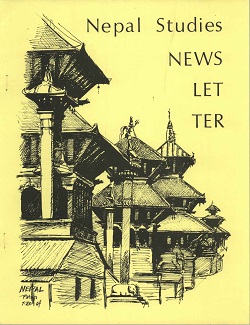Author Biography
Pawan Kumar Sen is interested in contemporary political issues and state restructuring in Nepal, in particular republicanism, federalism, secularism and multilingualism. He has experience in quantitative research methodologies and the analysis of large-scale survey data. He is currently working on his doctoral dissertation, entitled “Opinions of the Political Elites and the General Public: Exploring the Determinants of Political Change in Nepal in Times of Transition,” at Leiden University, the Netherlands.
Abstract
This paper is based on longitudinal public opinion surveys conducted between September 2006 and April 2012. In it I argue that, according to this survey data, the majority of Nepali people still want Nepal to be a Hindu state. However, a significant number of Nepalis wish to see their country as a secular state. The surveys also reveal that the public’s preference toward the Hindu state is not accepted in all sub-national levels; a preference for a secular state is evident in some of the sub-national levels, which cannot be undervalued. This paper also establishes that the public’s opinion on the issue of secularism significantly corroborates the public’s opinion on the issues of federalism and republicanism. The partial correlation and multiple regression analyses confirm that the public’s support toward one new feature of the state (secularism) agrees with another new feature of the state (federalism/republicanism), and vice-versa. Nepali identity before April 2006 was promoted based on monocultural values, which favored particular dominant groups. Other groups felt suppressed and excluded from the mainstream course of the state. Therefore, state recognition of multicultural values is a must in this time of political transition while conceptualizing a new form of Nepali identity. I argue that this will bring a sense of ownership of the state to all groups. As the process of writing a new constitution is currently underway, Nepal has the opportunity to legally recognize the voice of the minority. If Nepal’s democracy is to be made inclusive, a new Constitution needs to reflect the voice of the minority in its clauses. This not only guarantees the arrival of an inclusive democracy, but also makes the entire populace, including its minorities, true owners of the land and its Constitution.
Acknowledgements
Pawan Kumar Sen is grateful to Dr. Sudhindra Sharma, Executive Director of Interdisciplinary Analysts (IDA) and Adjunct Professor of Nepa School of Social Sciences and Humanities, for giving him permission to utilize raw data of the surveys conducted by IDA for his study. He is obliged to the two anonymous peer reviewers for their valuable comments and suggestions which helped him to make the arguments of this paper more effective and consistent. The analysis and interpretation presented in this paper are the part of his ongoing Ph.D. research at Political Science Department of Leiden University, the Netherlands.
Creative Commons License

This work is licensed under a Creative Commons Attribution 4.0 License.
Recommended Citation
Sen, Pawan Kumar. 2015. Should Nepal be a Hindu State or a Secular State?. HIMALAYA 35(1).
Available at:
https://digitalcommons.macalester.edu/himalaya/vol35/iss1/11


